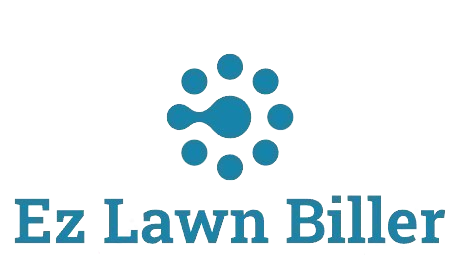Manage Schedules: Best Practices for Lawn Care Pros
Managing schedules is a crucial aspect of running a successful lawn care business. Efficient scheduling not only ensures that your services are timely but also maximizes productivity and enhances customer satisfaction. In this blog post, we will explore best practices for managing schedules in the lawn care industry, offering tips and insights that can help lawn care professionals streamline their operations. From leveraging technology to optimizing routes, we’ll cover it all.
In the lawn care business, time is money, and a well-organized schedule can significantly impact your bottom line. Lawn care professionals often juggle multiple clients, services, and unexpected weather changes, making effective scheduling critical. However, many struggle to balance these demands without sacrificing quality or service delivery. In this article, we will discuss proven strategies that can help you manage your schedules better, ensuring your business operates smoothly and efficiently.
This comprehensive guide will explore various aspects of schedule management, including the use of lawn service software, effective time allocation, and customer communication. Additionally, we’ll look at real-world examples and practical tips that can be implemented immediately. Whether you are an independent contractor or manage a larger lawn care team, these strategies will help you optimize your workflow.
Understanding the Importance of Schedule Management
A well-managed schedule is essential for any lawn care professional. It is the backbone of your operations, dictating how services are delivered and ensuring that client expectations are met. Effective schedule management can lead to increased productivity, reduced operational costs, and enhanced customer satisfaction.
According to recent industry research, lawn care businesses that adopt structured scheduling practices see a 30% increase in efficiency. This translates to more jobs completed in less time, ultimately maximizing profits. Moreover, effective scheduling minimizes the chances of double bookings and missed appointments, which can harm your reputation.
By utilizing a lawn service app, lawn care professionals can streamline their scheduling process, allowing for better time management and improved client communication. For instance, automated reminders sent to clients can reduce no-shows, ensuring that every appointment is honored. This not only saves time but also builds trust with your clientele.
Utilizing Lawn Service Software for Efficient Scheduling
In today’s digital age, leveraging technology is critical for effective schedule management. Lawn billing software can automate and simplify many aspects of your scheduling process. These tools can help you track appointments, manage client details, and send invoices seamlessly.
With a reliable lawn service software, you can easily create and manage service schedules, allowing you to focus on what you do best—providing exceptional lawn care. For example, EZ Lawn Biller offers features like customizable invoices and automated billing that can save you hours every week.
Moreover, using a lawn company app can enable you to access your schedule on-the-go, allowing you to make adjustments in real time. This flexibility is crucial for adapting to last-minute changes or emergencies, ensuring you can respond quickly to your clients’ needs.
Prioritizing Client Communication
Effective scheduling goes hand-in-hand with clear communication. Keeping your clients informed about their service appointments can help manage their expectations and foster loyalty. Implementing a system for reminding clients of upcoming services not only reduces no-shows but also enhances your professional image.
Incorporate confirmation and reminder messages into your client communication strategy. Text messages or emails can be automated through your lawn service software, ensuring that all clients receive timely notifications. This proactive approach can significantly reduce cancellations and increase customer satisfaction.
Additionally, consider scheduling regular check-ins with clients to discuss their lawn care needs. This practice not only shows that you value their business but also allows you to identify potential upselling opportunities, such as additional services or seasonal treatments.
Optimizing Routes for Maximum Efficiency
Route optimization is another essential component of effective schedule management in the lawn care industry. By planning the most efficient routes, you can minimize travel time between jobs, ultimately increasing the number of clients you can serve in a day.
Using a lawn company computer program can assist you in analyzing and mapping out the best routes based on your scheduled appointments. This use of technology reduces fuel costs and saves precious time. Additionally, ensuring that your team follows optimized routes can enhance their productivity and overall job satisfaction.
For instance, if you’re servicing multiple clients in the same neighborhood, scheduling those appointments back-to-back can streamline your operations. This practice not only saves time but also minimizes wear and tear on your equipment, leading to long-term savings.
Time Allocation and Task Management
Proper time allocation is vital for maximizing productivity in your lawn care business. Establish clear time slots for each service type, whether it’s mowing, fertilization, or landscaping. This method ensures that you provide consistent service quality while also managing client expectations.
Evaluate the time required for each service and make adjustments to your schedule as necessary. For instance, if you find that a particular task consistently takes longer than anticipated, consider allocating additional time for that service in the future. This attention to detail can enhance client satisfaction and trust in your abilities.
Moreover, keeping a buffer time between appointments can account for any unexpected delays or challenges that may arise during service delivery. By allowing for this flexibility, you can maintain your schedule without compromising service quality.
Implementing Best Practices for Lawn Care Scheduling
As you refine your scheduling process, consider implementing these best practices to ensure continued success:
- Use lawn service software to manage appointments, track services, and communicate with clients.
- Develop a standardized scheduling system that all team members understand and follow.
- Regularly review and adjust your schedules based on client feedback and service demand.
- Invest in training for your team to ensure that they understand the importance of time management and client communication.
- Utilize reports generated by your service company software to analyze performance and make informed decisions.
These practices will not only improve your scheduling efficiency but also contribute to a more robust and reputable lawn care business.
Adapting to Seasonal Changes and Trends
In the lawn care industry, seasonal changes can significantly impact your scheduling and service demands. Understanding these trends is essential for effective schedule management. For instance, spring and fall often see a surge in service requests as clients prepare their lawns for peak seasons.
Plan your schedules accordingly, allowing for increased availability during these busy periods. Consider offering seasonal promotions to attract new clients while ensuring your current customers are well-serviced. By anticipating demand, you can better allocate your resources and manage your schedule efficiently.
Additionally, adapt your services based on weather patterns. Rainy weeks may lead to a backlog of appointments, requiring you to adjust your schedule dynamically. By staying flexible and responsive to changing conditions, you can maintain efficiency and client satisfaction.
Leveraging Client Feedback for Continuous Improvement
Client feedback is invaluable for refining your scheduling practices. Regularly solicit feedback from your clients regarding their experiences, particularly around scheduling and service delivery. This information can help identify areas for improvement and highlight what you’re doing well.
Encouraging reviews and testimonials can also serve as a powerful marketing tool while providing insights into your clients’ expectations. Regularly analyze this feedback to make informed decisions about your scheduling practices and service offerings.
To further enhance your reputation, consider implementing a loyalty program for repeat clients. This strategy encourages customers to remain engaged with your services and can help level out seasonal demand fluctuations by encouraging consistent usage.
Conclusion
Managing schedules effectively is essential for lawn care professionals aiming to enhance their service delivery, improve customer satisfaction, and maximize efficiency. By utilizing lawn service software, optimizing routes, and fostering clear communication with clients, you can streamline your operations and focus on delivering top-notch services.
Remember to adapt your scheduling practices according to seasonal changes and client feedback. Continuous improvement in your approach will not only benefit your clients but also facilitate the growth of your lawn care business.
As you refine your scheduling strategies, consider exploring solutions like [Lawn Biller Software](https://ezlawnbiller.com/) to help automate your billing and scheduling processes. Take the next step towards a more efficient and profitable lawn care business today!




